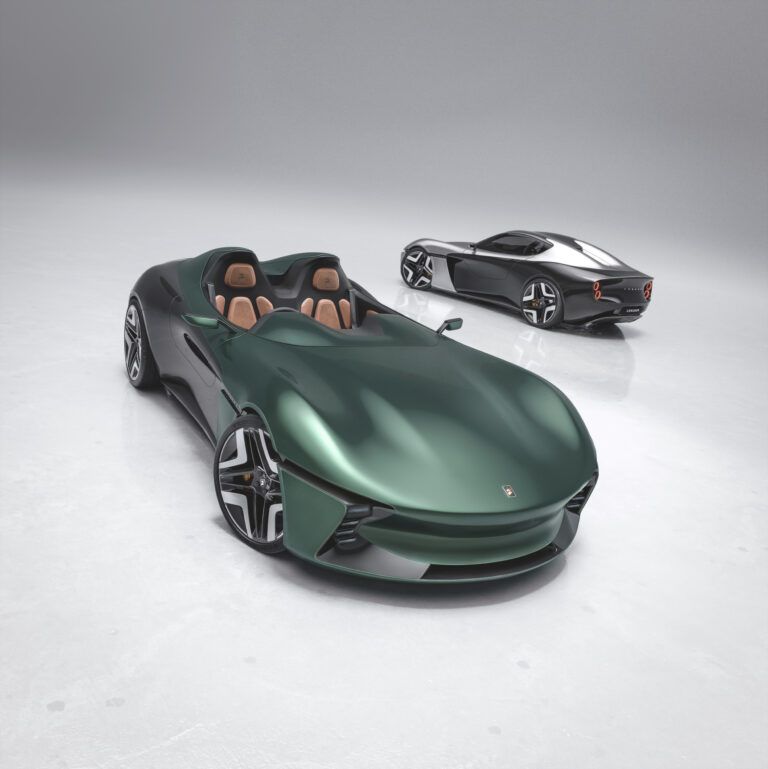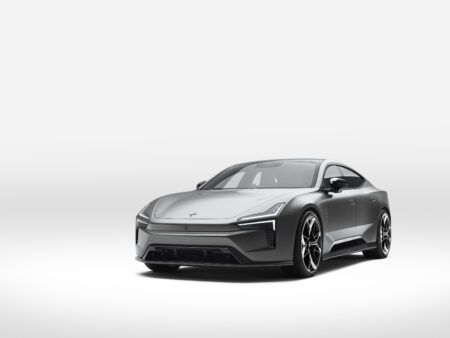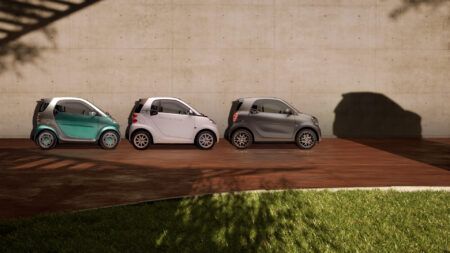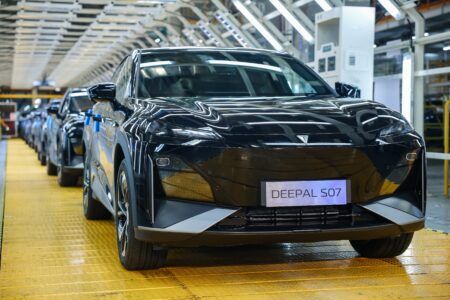In a market saturated with ever-heavier EVs, a new British marque is betting big on going light. Enter Longbow Motors – the world’s first dedicated electric sports car manufacturer in the UK and the creator of an entirely new automotive segment: Featherweight Electric Vehicles (FEVs). With its Speedster and Roadster models, Longbow isn’t just electrifying the lightweight sports car formula – it’s redefining it.
“We have lost something important,” says Daniel Davey, Longbow’s Co-Founder and CEO. “Many modern ‘sportscars’ tip the scales at 1,500kg and BEVs can reach almost double that. There is a need for a more driver-oriented, featherweight, electric sportscar.”
At a time when the average electric car weighs 30% more than its internal combustion counterpart – due to the bulk of batteries and reinforced chassis – Longbow’s models are shockingly lean. The Speedster tips the scales at just 895kg, while the Roadster weighs a modest 995kg. For context, that’s lighter than a Mazda MX-5 and over 500kg less than a Tesla Model 3 (which weighs 1,611kg per the US EPA). Both Longbow cars sprint from 0-62mph in under 3.6 seconds.
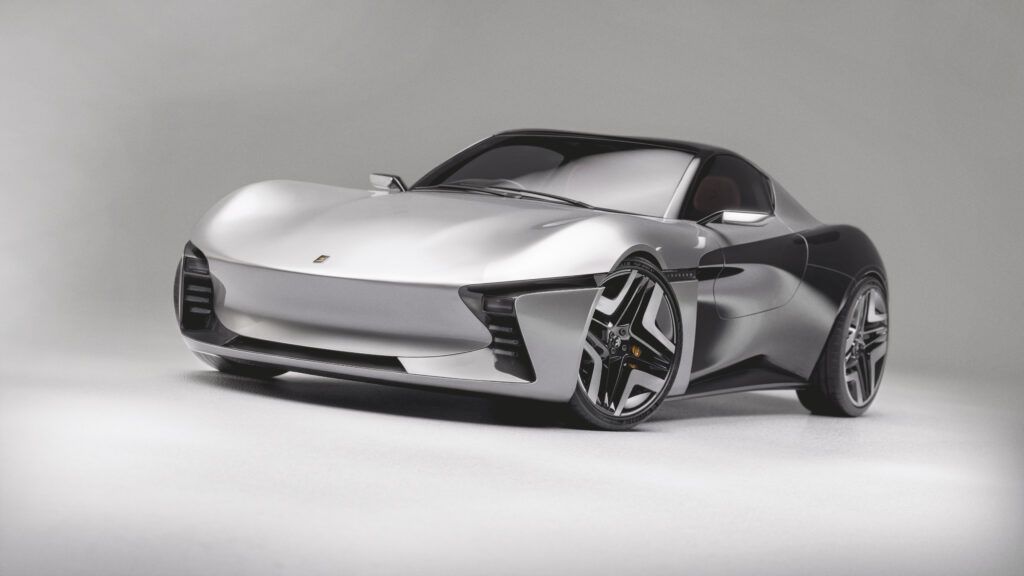
Future legacy
Longbow’s story is one of engineering pedigree and purist philosophy. Founded by Davey, Jenny Keisu, and Mark Tapscott – veterans of Tesla, Lucid Motors, BYD, and the marine EV startup X Shore – the company brings together decades of automotive and tech innovation.
The ethos of Longbow is encapsulated in its Latin motto: Celeritas Levitas, or “the speed of lightness.” For the founders, it’s more than branding, it’s a mission. The team has drawn inspiration from legends like the Lotus Elise and Jaguar E-Type, crafting electric cars that prioritize feedback, engagement, and a return to tactile driving.
“Longbow is the next chapter in that story,” explains Tapscott. “British engineering and automotive craftsmanship have a long history of developing lightweight sportscars with great commercial and competitive success.”
The first Longbow to hit the road will be the Speedster – a minimalist open-top machine with no roof, no windscreen, and no apologies. Weighing in at 895kg and producing 322bhp from a 240kW electric motor, it accelerates from 0-62mph in 3.5 seconds and delivers a WLTP-estimated range of 275 miles. Pricing starts at £84,995, and just 150 cars will be hand-built.
Shortly after comes the Roadster, a fixed-roof coupe aimed at a slightly broader audience. At 995kg and 3.6 seconds to 62mph, it sacrifices none of the performance. Its 280-mile range and more accessible £64,995 price point put it in contention with top-spec Caterhams, Porsche’s mid-range Boxsters, and even undercuts the Lotus Emira by £20,000.
Critically, both models are built on the same bespoke aluminum chassis, shaped for rigidity and minimal weight. “It is purposeful in proportion, shaped for speed and honed for feedback to deliver a driving experience that feels alive in your hands,” states Longbow’s press release.
Fat-free engineering
To keep weight and costs in check, Longbow has shunned carbon fiber for sustainably-produced composite panels wrapped around an aluminum structure. Where many startups might waste resources reinventing every component, Longbow takes a more pragmatic approach: “Rather than developing proprietary components, Longbow sources critical elements like batteries, motors, and brakes from established suppliers,” the company states.
Power comes from 2170-format nickel-cadmium cylindrical battery cells, a choice that offers proven performance and a high energy density. While Longbow hasn’t disclosed exact capacity (estimated to be in the 50-60kWh range based on range and weight), they have built in modularity: the architecture is swappable and future-ready. “The cars can accommodate different battery formats, including both cylindrical cells and pouch cells,” the company notes, helping to future-proof the platform against evolving chemistries and supply disruptions.
The software stack that connects it all is Longbow’s own, and the company is actively exploring a dual-motor version for future variants – possibly opening the door to AWD performance.
Longbow is firm in its belief that sports cars should serve the driver, not distract them. You won’t find artificial engine sounds or fake gearshifts here. Instead, the cockpit is tactile and timeless, focused on essentials and craftsmanship. “It represents driving ‘like it used to feel,’” the company states. Expect leather, metal, and minimal screens – this is driving distilled.
“Speedster and Roadster are striking, light, nimble, balanced, and engineered for an unparalleled driving experience,” the founders say. It’s not just rhetoric – the commitment to a sub-1,000kg EV required a complete rethink of every component. Lighter vehicles also mean smaller motors and batteries, which lowers cost and increases efficiency – both financially and environmentally.
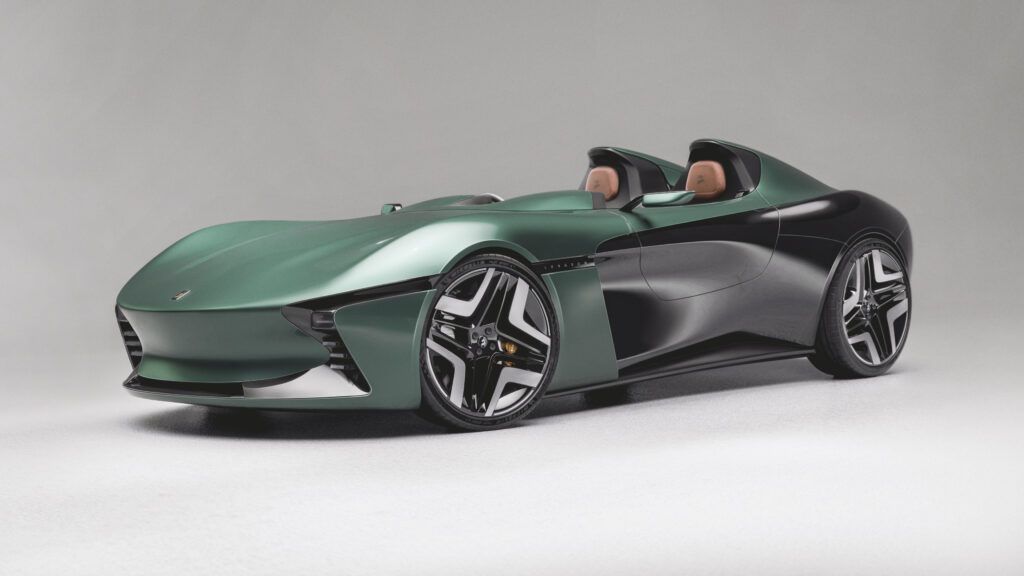
Made in Britain
Production will take place in the UK, leveraging the nation’s rich network of performance car suppliers and engineering talent. From Formula E powertrain partners to motorsport-grade chassis consultants, Longbow’s chosen supply chain is one of proximity and precision. The company has yet to confirm a factory location but site selection and production planning are well underway, with plans for a running prototype this summer and customer deliveries scheduled for 2026.
“There are only a few places in the world where you can hand build a sportscar,” explains Tapscott. “In the UK, British engineering and automotive craftsmanship have a long history of developing lightweight sportscars with great commercial and competitive success. Longbow is the next chapter in that story, harnessing those same ideas to create the greatest driver’s cars of the modern era.”
The founders believe their experience gives them a unique advantage in avoiding the pitfalls that have claimed so many British sports car makers. “Number one, as a company, we and our other co-founder Jenny have done this before,” says Davey. “[We’ve been at] Tesla, Lucid, Polestar, Chinese manufacturers. There are not many people on the planet that have done it once – we’ve [launched EV makers] four or five times across multiple companies and continents. So we know how to build the company side of it.”
The Featherweight Electric Vehicle (FEV) class is entirely new. While most electric sports cars today – such as the Rimac Nevera or Lotus Evija – focus on extreme horsepower and futuristic styling, Longbow is carving out space for something different: simplicity, affordability (relatively), and accessibility for driving purists.
Acciording to Bloomberg, EV adoption projected to reach 60% of new car sales globally by 2030, and growing interest in sustainable performance, Longbow’s niche may soon become a movement. With reservations now open, the coming months will reveal whether this audacious entry into the electric sports car market can succeed where so many British automotive startups have failed. What’s certain is that the industry will be watching closely to see if Longbow’s featherweight approach marks the beginning of a new chapter in sports car evolution.
“We are reviving an icon,” concludes Davey. “The lightweight British sportscar.”


